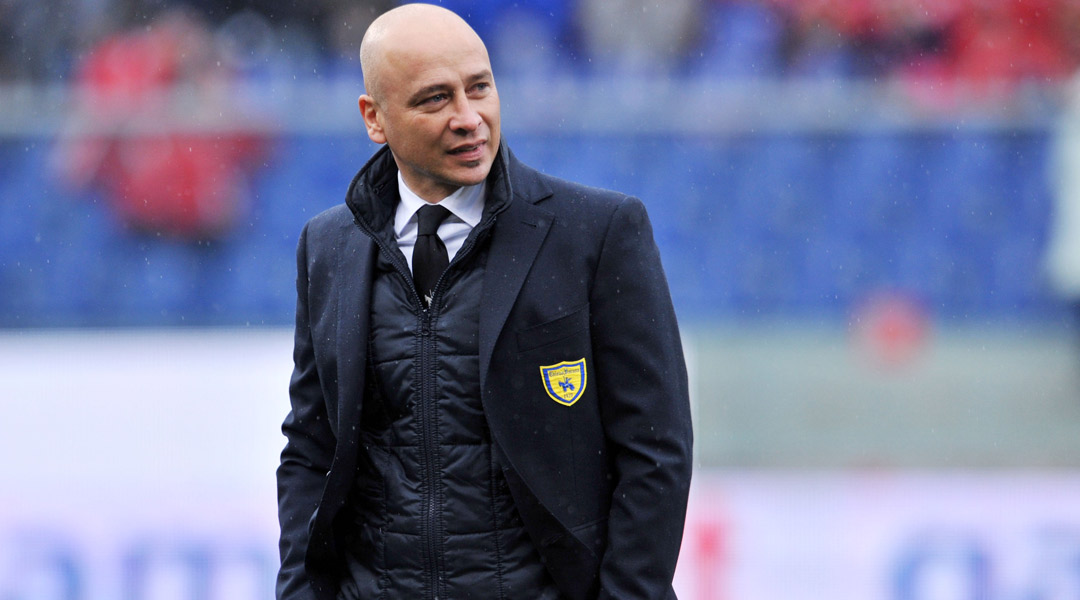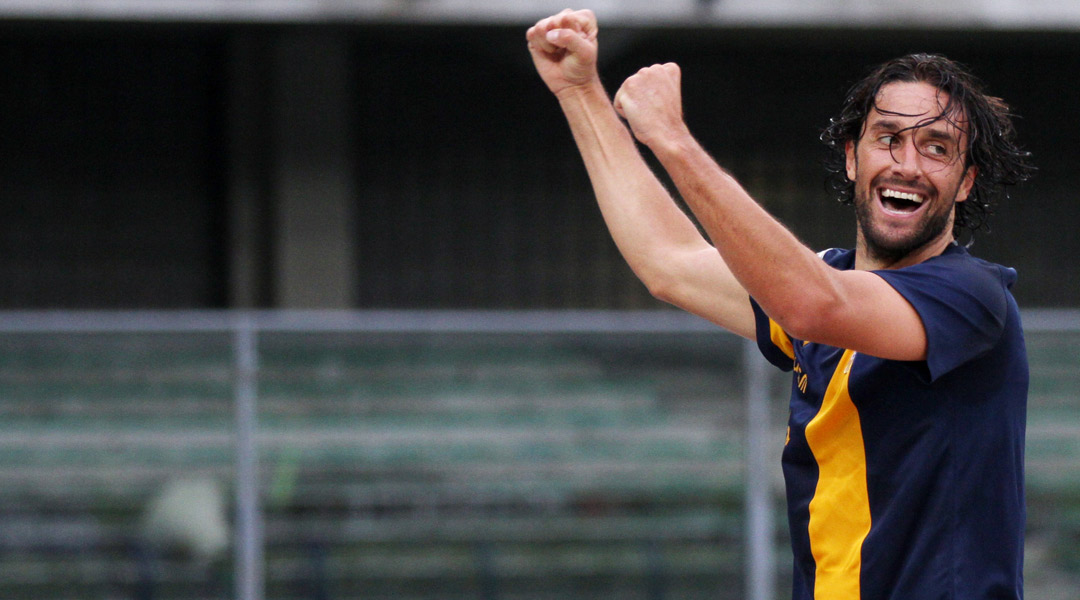Chievo savour rare moment of glory in Italy's donkey derby
Richard Whittle on the city shenanigans Shakespeare didn't bother with in Romeo & Juliet...

Unlike the Capulets and Montagues, there has never been much of a rivalry between Hellas Verona and Chievo in the fair city of Verona.
They may share the Stadio Bentegodi and club colours of yellow and blue, but there is hardly a feud over which club represents the city. That honour goes to Hellas, while Chievo take their name from the small ward out in the suburbs and seem more than content as the quiet neighbours down the road. In fact, in the eyes of Hellas fans the real derby has always been against regional rivals Vicenza.
Until Hellas and Chievo met in the 2001/02 Serie A campaign, the saying had been: “There will be a Verona derby in Serie A when donkeys fly”, and thus the 'Flying Donkeys' were born.
Until last Saturday, the two matches in that season had been the only ones between the pair to have taken place in the top flight. In that period, former Scudetto winners Hellas had dropped as far down as the third-tier Prima Divisione, while Chievo had qualified for Europe.
Get FourFourTwo Newsletter
The best features, fun and footballing quizzes, straight to your inbox every week.
But even in the dark times, Hellas could still count on around 12,000 season-ticket holders, whereas Chievo could just about muster that sort of crowd for a big Serie A match.
So unsurprisingly the return of the Derby della Scala, which takes its name from the influential Scaligeri family of Middle Age Verona, saw the designated away side take only 1,700 tickets of their 3,000 allocation for the Curva Nord section behind the goal. The rest of the ground belonged to the Hellas faithful.
Homework pays
It had the makings of a mis-match on the pitch as well, with sixth-placed Hellas seeking a record seventh home win of the season against the bottom side, who had only picked up one win all season.
As has been the way on such occasions, though, it was the underdog that took home the spoils, with substitute Dejan Lazarevic scoring the only goal of the game in the 91st minute. Up until then the encounter had been as grey as Chievo's kit, with neither side producing much in the way of goalscoring opportunities - although the visitors had a perfectly good early goal from Bostjan Cesar ruled out for a non-existent offside.
It was a match tailor-made for returning Chievo coach Eugenio Corini, who led the side to a 12th-place finish last season and was back in charge after Giuseppe Sannino’s sacking before the international break.
He had left Chievo by mutual consent in the summer, although he probably recognised that a tough season lay ahead and the former midfielder, who played for both clubs, used his time wisely. In fact, Corini had been studying Hellas' No.1 Andrea Mandorlini, and there is no doubt that his inside knowledge of the opposition was a decisive factor in how the match panned out.

As a deep-lying playmaker in the Andrea Pirlo mould – both players came through the Brescia youth system – Corini had been nicknamed 'the Genius' during something of a journeyman career that spanned 23 seasons and included stops at Juventus, Napoli and Palermo among others.
Now 43, following an apprenticeship in the lower leagues in charge of Crotone and Frosinone, he has demonstrated a coaching intellect that should take him further up the ranks. For now, though, he will hone his skills masterminding Chievo’s survival.
Under Sannino the team played with three at the back, with two wing-backs retreating when the team were on the back foot - i.e. most of the time. In the first 12 matches it was more a matter of simply holding on, but with such a defensive attitude there was little opportunity to launch any counter-attacks.
Fine margins
Mandorlini is the master of the quick break, and his gameplan is to draw teams forward and then hit them quickly with wide players and midfielders pouring forward to support Luca Toni. So rather than wait to fall into that trap, Corini fielded a four-man defence and shortened the play a good five metres up the pitch with an extra two men in midfield to pressure the opposition.
And it was by centimetres that the game turned Chievo’s way. Hellas found it difficult to release dangermen Jorginho and Juan Iturbe into advanced positions with limited space to play the ball forward or even run into, as the grey shirts blanketed the midfield and defended in a line just outside their own penalty area.
Teams are beginning to work out that Hellas can be pinned back by crowding the midfield, but at the same time not committing too many bodies forward so as not to get caught on the break. Genoa employed a similar tactic in their 2-0 win in the last round and it must have been noted by Corini that Mandorlini’s men had little in the way of a Plan B to fall back on.
Corini’s substitutions also worked to perfection. Midfielder Lazarevic was introduced with 30 minutes remaining, hard-working frontman Alberto Paloschi came on with 15 minutes to go and another midfielder, Boadu Acosty, was a run-down-the-clock change when a draw looked the likely outcome.
But the winner came straight from the coaching manual: get the ball wide when the opposition are stretched and then make sure you have players in the area when the cross is delivered. Lazarevic timed his run to perfection to finish with a low shot, but it was Corini’s perfect planning that ensured Chievo could enjoy a rare moment as Veronese top dogs.
